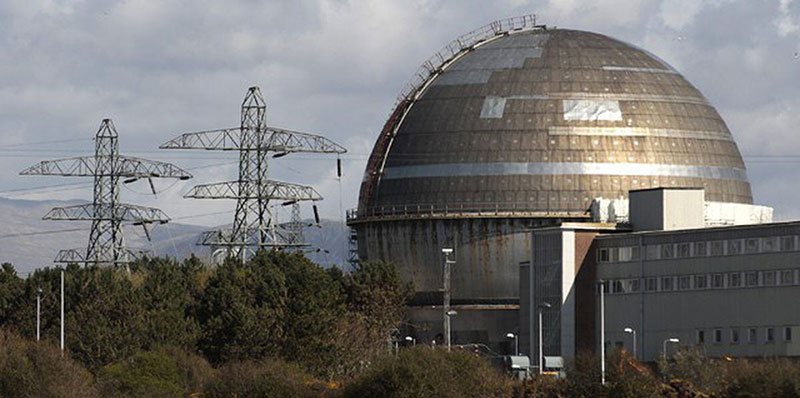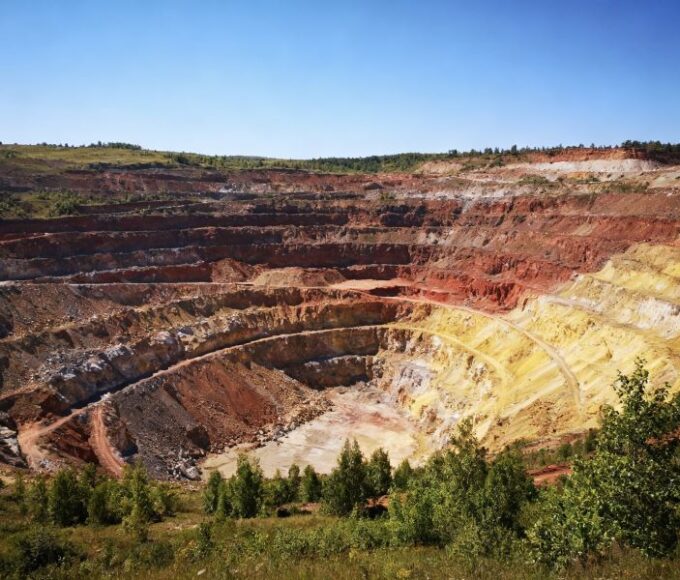Following the nuclear leak in Japan, concerns have been raised about the Sellafield nuclear facility in the UK. Located on the northwest coast of England, Sellafield is one of the earliest nuclear facilities in the UK. However, over the years, the facility has been plagued by mismanagement and safety hazards. On December 5th, The Guardian, citing official documents, revealed that in 2019, a crack appeared in the storage facility containing toxic radioactive waste, leading to a continuous leakage of nuclear waste. Despite indications in the documents that the leakage could persist until 2050, potentially contaminating groundwater, officials chose to conceal the facts, considering it as having “potential serious consequences.”
The UK nuclear leak scandal erupted as the Sellafield nuclear power station’s nuclear waste storage facility continued to leak for three years, resulting in the contamination of surrounding soil, groundwater, and air with radioactive substances. The severity of this incident is significant, especially considering that Sellafield also stores nuclear waste from other European countries. This leakage event has triggered a European energy crisis, raising greater concerns about the safety of nuclear energy.
Situated on the northwest coast of England, Sellafield is one of humanity’s earliest nuclear facilities. However, over the years, the facility has faced aging issues and management chaos, with several incidents of fires. The European Union issued warnings as early as 2001, but the UK government chose to ignore them, even deleting relevant meeting records. This concealment and irresponsible behavior have led to the serious consequences of the nuclear leakage incident.
The Sellafield nuclear leak incident has had a significant impact on European countries. Radioactive substances spread through the air, contaminating the ecological environment of Atlantic coastal countries. Norway is one of the most affected countries, as the radioactive substances from Sellafield can reach Norway in just 12 hours due to prevailing westerly winds, causing irreversible damage to its ecological environment. Other countries such as Ireland and the United States have also expressed concerns about this matter.
The UK faces pressure for energy self-sufficiency, but due to frequent nuclear incidents in the past decades, nuclear energy has been highly controversial. However, to achieve energy self-sufficiency, the UK must also address the issue of nuclear pollution and waste from the past few decades. This is undoubtedly an additional challenge for the UK, already grappling with Brexit-induced inflation and pension fund crises.
The privatization of the European energy market has made the UK’s energy supply vulnerable. Forty percent of electricity supply relies on imported natural gas, primarily from Russia. Previous Russia-Ukraine conflicts and the rekindling of tensions in the Middle East have increased uncertainty in the UK’s energy supply. Therefore, the UK government is forced to reconsider the use of nuclear energy as an energy option.
However, the outbreak of the nuclear leak scandal has heightened concerns about the safety of nuclear energy. European countries such as France and Italy, which were considering a return to nuclear power, are now forced to reassess the risks. The entire energy issue in Europe has been entangled in this nuclear leakage incident.

The eruption of the UK nuclear leak scandal once again demonstrates the risks and importance of nuclear energy management. Governments should strengthen supervision of nuclear facilities to ensure the safe operation of nuclear energy. Meanwhile, European countries should enhance cooperation, collectively address the energy crisis, promote the development of renewable energy, and reduce dependence on nuclear energy. Only in this way can we ensure the sustainable development of future energy and environmental protection.













Thank you for the good writeup. It in fact was a amusement account it. Look advanced to far added agreeable from you! However, how could we communicate?